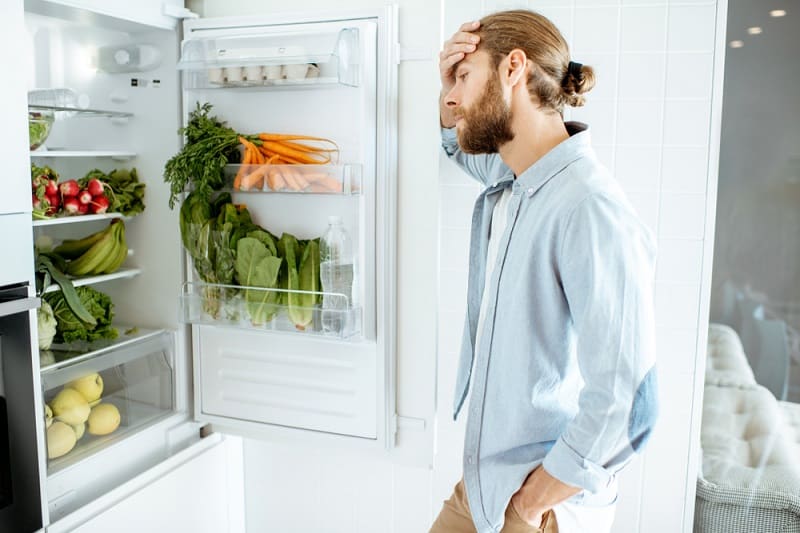
Refrigerators are a must-have electronic appliance for every home that provides you cold water and ice, freezes meat and other foods, and preserves leftovers.
In fact, it’s such an important appliance that you’d be hard-pressed to think about living without one.
If you don’t have a refrigerator, where will all of your leftovers go? What will you do with all of the food that’s remaining on the table? Similarly, what about storing meat?
You can’t keep meat out without a freezer for very long. Bacterial growth will start multiplying by the second, and within a few hours, the meat will become inedible and harmful.
All in all, refrigerators are important than ever before. The amount of food waste continues to rise, and a refrigerator helps you prevent food from wasting.
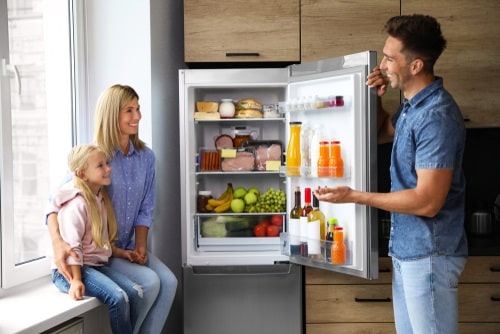
Now, what if your fridge stopped working and then started working again? It may seem like a glitch, but you may want to know the potential reasons.
What if it’s a sign of a serious problem? You may want to get it fixed before the entire refrigerator stops working altogether.
In this article, we are sharing the potential reasons and solutions!
Reasons Why Your Fridge Stopped Working Then Started Again
Modern fridges are integrated with overload switches, thermostats, fans, and timers to optimize the cooling process.
There are a series of mechanical and electrical components connected, all of which are designed to ensure the smooth performance of your refrigerator.
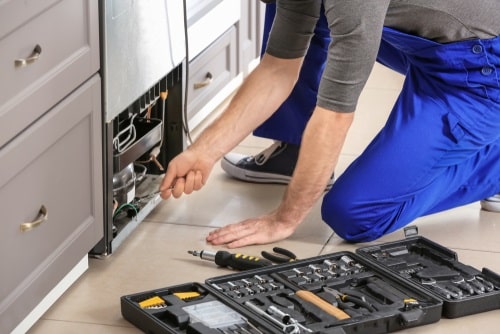
In some fridges, there are automatic defrost units with heaters that tend to switch off and switch on automatically to reduce the chances of frost buildups.
On the other hand, there is always the risk of hardware component issues. So, let’s see what you need to focus on!
1. Breakers
First of all, the majority of homes are equipped with 20-ampere circuits for the fridges, specifically.
However, if you live in a built property quite a while ago, there are chances that fridges are routed through the regular circuit.
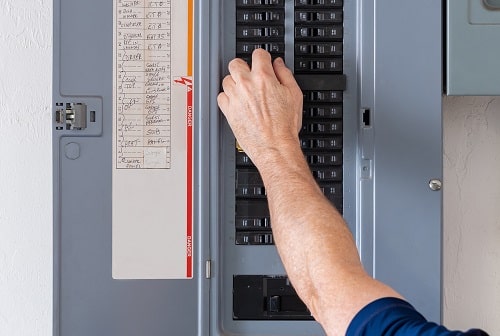
With this being said, the breaker issue might lead to intermittent switching off and switching on, so if the circuit breaker trips, you will have to turn it on manually.
In some cases, you might even need to replace the fuse.
2. Plugs
If you have replaced the fuse and the breaker wasn’t tripped out, there are chances that the plug is faulty. That’s because if the plug is loose, the power output will be affected.
With this being said, you should try plugging in a lamp and see if it’s getting enough (and uninterrupted power). You need to check the power cord because if it’s damaged, the power relay will be affected.
In the case of a damaged power cord, the wire may be shorted, resulting in sudden power off and power on.
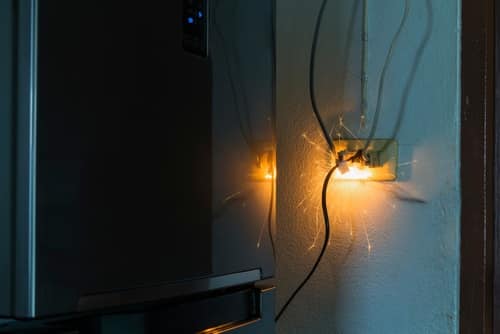
If you don’t fix or replace the power cord, it can lead to a fire. So, always replace the power cord instead of using a faulty one.
These are technical issues, and it’s generally recommended that you let a professional handle this.
Electrical issues can cause damage to your entire house, so it’s best to let someone with experience dealing with the problem.
If you realize that the plug causes the issue, it’s recommended that you replace it. Just call an electrician, and they will do the rest. It’s a fairly simple fix.
You can replace the main power cord and the plug without putting an excessive burden on your wallet.
3. Thermostat
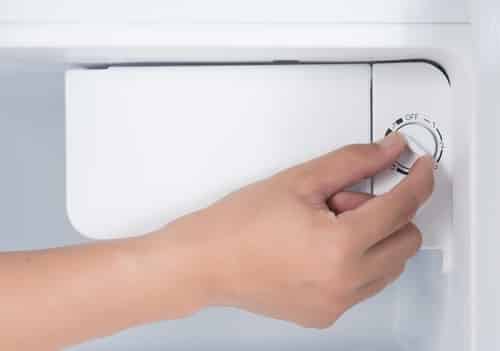
If the thermostat is adjusted incorrectly, the fridge will turn off and turn on again when the temperature increases. The compressors are responsible for providing power for the cooling process.
In this case, it is suggested that you lower the thermostat setting to ensure the compressor keeps working properly.
If the low setting fixes the issue, then you are good to go. This is something that you should check right off the bat before implementing any other fix.
4. Dust
If the fridge has dust buildup in the coils, this will impact the fridge’s operation. Also, it can lead to a compressor issue as the compressor will heat up excessively over time.
Consequently, the motor will heat up, resulting in abrupt and inefficient functioning.
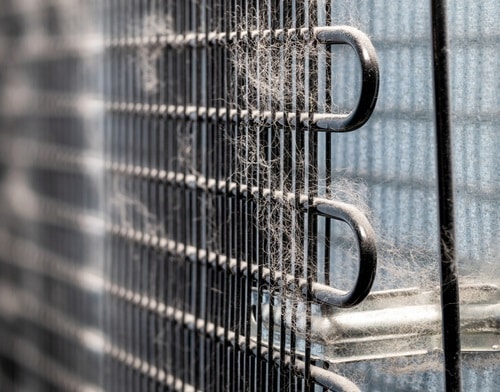
In this case, you need to remove dust and dirt from coils through a vacuum hose. Remove the attachment in front of the vacuum and then suck in all of the dust. It’s a simple process but a highly effective one.
As a rule, you should clean the back of your fridge every couple of months. Dust buildup at the back, where all of the coils are located, is a serious issue.
Also, it would be best if you clean up the overflow tray. These steps are responsible for optimizing the airflow around the hardware, promising seamless and efficient performance.
5. Ice
If you are using an older fridge model, it can result in excessive ice buildup around the freezer compartment and coils.
With this being said, the ice buildup will adversely impact the performance of your fridge.
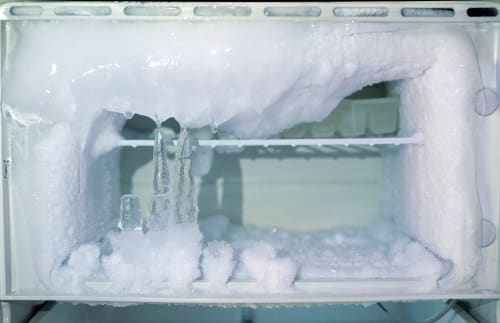
So, it would be best if you defrost the entire fridge and the freezer compartment to ensure unhindered functionality.
You can also use a hairdryer to fasten up the defrosting process. Once all of the ice inside your fridge has melted, the next step is to remove it from the walls of your fridge.
Most of the water is going to flow through the internal drainage, but you will have to manually remove the rest of it, as well as the ice chunks that have gotten loose and fallen on the floor of your fridge.
See if that does the trick. If none of these methods result in a solution, the best option is to call a fridge repairer.
Conclusion
You can search for technicians in your area and contact one to fix the fridge. It might be a malfunctioning internal component, so it’s best if you take action right away.
Don’t use your fridge if it continues to turn on or off again. It could lead to permanent damage, and you never know for how long the fridge may have been turned off in the night before powering on again.
Your food might be spoiled inside as well. Therefore, the best option is to make sure that you call a professional to check the fridge and determine the cause of the problem.